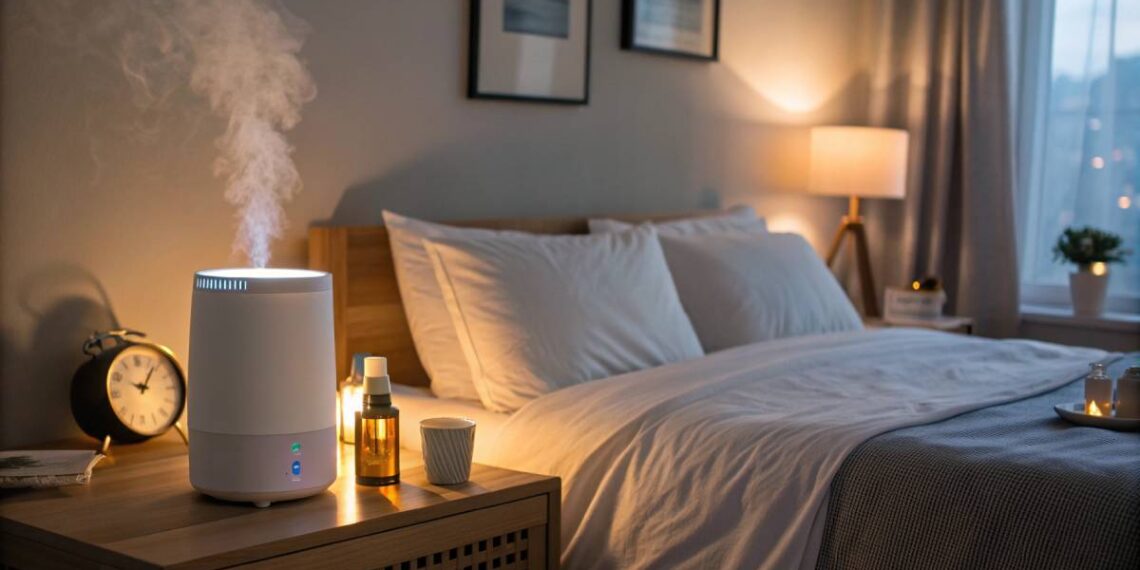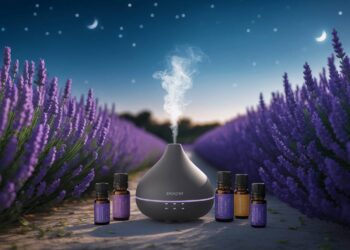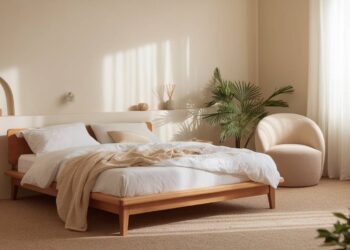Ever find yourself tossing and turning, yearning for a peaceful night’s rest? You’re not alone. In our hectic lives, achieving quality sleep can feel like an elusive dream. From battling pesky allergens to navigating the maze of sleep aids, countless factors influence how well we snooze. Whether you’re struggling with insomnia, managing a medical condition, or simply looking to optimize your sleep environment, this guide provides actionable insights and effective strategies to transform your nights. Dive in to discover how creating a sleep-friendly space and understanding your options can lead to more restful and rejuvenating sleep.
Key Takeaways
- Optimizing Sleep Environment: Learn how to eliminate allergens, control humidity, and improve ventilation to create a serene sleep space.
- Understanding Sleep Aids: Explore the differences between natural supplements, over-the-counter options, and prescription medications.
- Managing Sleep Disorders: Recognize signs of serious sleep issues and the importance of medical supervision.
- Benefits of Aromatherapy: Discover how essential oils can enhance relaxation and improve sleep quality.
- Safe Usage Practices: Gain insights into the safe and effective use of sleep aids to avoid dependence and adverse effects.
- Holistic Sleep Strategies: Incorporate non-medication methods like cognitive-behavioral therapy and lifestyle changes for sustainable sleep improvement.
Why Breathing Easy Boosts Your Sleep
Getting some quality shut-eye might just start with what you’re sniffing. When the air around you isn’t up to par, it can mess with your sleep, bringing troubles that could send you tossing and turning all night.
Sleep and the Air You Breathe
Lousy air has its ways of poking you awake. Here’s the lowdown:
- Breathing Problems: Nasty stuff in the air might make your pipes clog up, setting off that midnight coughing symphony.
- Snore Wars: More gunk in the air could turn mild snoring into a full-blown sleep stealer.
- Sneeze Fest: Ordinary air nasties could get your allergies going, with itchy eyes and sneezes stealing your snooze time.
| How Bad Air Affects Sleep | What’s Happening? |
|---|---|
| Breathing Problems | Coughing, Stuffy Nose |
| Snore Wars | Snoring like a freight train |
| Sneeze Fest | Sneezy, itchy-eye woes |
If finding yourself awake when you should be dozing off is all too familiar, it might be time to check what’s lurking in the air you’re breathing while you sleep.
“A well-optimized sleep environment is the silent partner in your quest for restful nights.” – Dr. Laura Simmons, Sleep Researcher
Usual Suspects in Indoor Air
Sniffing out these usual indoor culprits can help you crack the case of poor air quality:
- Dust Mites: Teeny critters snuggling up in your sheets, making you sneeze.
- Pet Flakes: Your beloved furball’s skin bits floating around, causing sniffles.
- Mold and Mildew: Creepy crawlies from damp corners puffing out spores.
- VOCs (Volatile Organic Compounds): Sneaky chemicals oozing from paints and sprays.
- Pollen: Hitchhiking pollen making its way inside to bug you.
| Sneaky Indoor Invaders | Where They Hide |
|---|---|
| Dust Mites | Your comfy bed and couch |
| Pet Flakes | Fluffy’s favorite spot |
| Mold | Damp bathroom nooks |
| VOCs | The walls and sprays |
| Pollen | Through open doors and windows |
Chopping down on these pesky pollutants can smooth the way to a fresher, more restful night. Getting savvy with sprucing up your sleep spot might also mean tinkering with humidity levels, making sure you’ve got a breeze flowing with proper ventilation, and picking the right air purifiers.
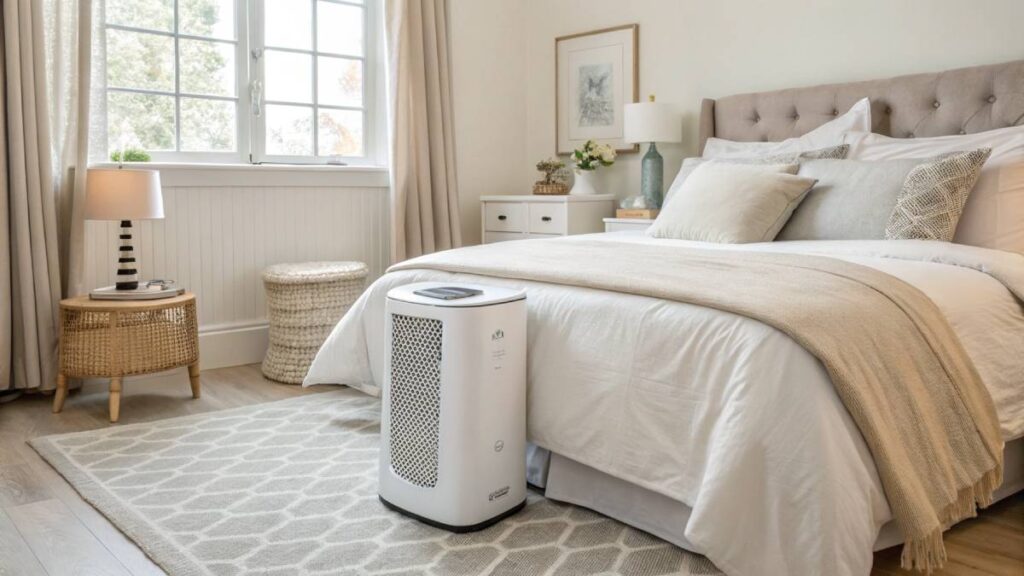
Figuring out these sleep roadblocks can lead you to dreamland, where better rest and feeling awesome go hand in hand.
Assessing Your Sleep Environment
Let’s talk about making your snooze space top-notch. Sorting out the air quality in your bedroom is where it’s at. By picking up on what’s making the air less than great, you’ll be well on your way to crafting a sleep zone that’s pure bliss.
Identifying Air Quality Issues in Your Bedroom
First things first—what’s messing with your air? Sub-par air can really mess with your Zs by bringing on sniffles, wheezes, and just plain lousy sleep.
| Trouble in the Air | What It Might Do to Your Sleep |
|---|---|
| Dust Mites | Bring on the Sniffles & Wheezes |
| Pet Dander | Lead to Coughing Fits |
| Mold and Mildew | Mess up Breathing & Sleep |
| Weird Chemicals (VOCs) | Headaches & Uneasy Snooze |
| Not Enough Fresh Air | Stuffy Nose & Struggles to Breathe |
Knowing what’s in your air is step one. This is even more crucial if you’re already losing sleep over things like insomnia or night-shift blues—or if you’re a tired parent, a senior, or just trying to catch some winks in the big city.

Factors Affecting Air Quality
Now, what messes with your room’s air? Knowing this can help keep the bad stuff in check.
| What’s Buggin’ the Air | What It Is | How It Messes with the Air |
|---|---|---|
| Stuff Inside | Stuff like Dust & Pet Fur, nasty fumes from things around the house | Cranks up the sneezables and irritations |
| Humidity Levels | Too much = mold; Too little = dust bowl | Makes it hard to breathe easy |
| Airflow | Poor airflow means stale air | Cuts down on the O2 |
| Temperature | When it’s all outa whack | Makes comfy sleep a distant memory |
| How Much You Clean | Dust piling up | Makes the air less fresh |
Keep the air sweet, and your sleep will thank you. Want more pointers on dialing in your dream den? Check out our handy guides on light and sleep quality and the perfect sleep climate.
Getting wise to what’s in the air and what’s messing it up is just the start. Want more street-smart tips for boosting your bedroom’s air vibes? Visit our sleep space know-how for all the deets.
Making Air Fresher for Better Sleep
Breathing clean air at night can really help you catch better Zs. This is easier with both Mother Nature’s touch and some nifty little gadgets.
Freshen Up Your Bedroom the Natural Way
Why rely on fancy gizmos when good old nature has your back? Try these easy-breezy tricks:
- Green Friends: Plants like snake and spider plants aren’t just for looks – these guys clean the air too. Curious? Check out the best plants for sleep.
- Breathe In, Breathe Out: Crack open the windows now and then, and let that fresh air in – your lungs will thank you.
- Wax On, Wax Off: Light up beeswax candles that clean the air while you unwind.
- Rock It with Salt: Himalayan salt lamps might just help zap those tiny annoyances floating around by balancing air moisture.
- Sniff Something Good: Oils like tea tree and eucalyptus aren’t just for smelling nice – they’re natural air fresheners. Need more info? Dive into aromatherapy for sleep.
Power Up with Air Purifiers and Filters
Okay, gadgets have their perks too. Here’s what you need to know about these air helpers:
- HEPA Superstar: With these filters, it’s like a mega vacuum for your air, snatching up big particles like dust and those tiny little bits that make you sneeze.
- Carbon Champs: Forget those funky smells – activated carbon filters eat them up along with those pesky chemicals.
- Zap It with UV: These use ultraviolet light to tackle bacteria and viruses. Goodbye, germs!
| Filter Type | What It Does |
|---|---|
| HEPA Filters | Grabs dust and pet hair |
| Activated Carbon Filters | Nixes smells and chemicals |
| UV Light Purifiers | Kicks germs to the curb |
Keep tabs on your air-clean machines to keep your sleep haven spotless. Want more ways to turn your room into a sleep sanctuary? Check out our guide on sleep environment optimization.

Humidity and Sleep Quality
Effects of Humidity on Sleep
Sleep quality hinges on the humidity of the room. If it’s too wet or too dry, you’re likely to toss and turn all night. Striking the right balance is crucial for better snooze time.
High Humidity
When the air turns swampy, it wraps you in a sweaty, sticky embrace. This isn’t just an annoyance; it can jack up the thermostat on mold and dust mites, giving allergies a free ticket to Bug You City. Breathing issues can sneak up, keeping you counting sheep instead of sleeping soundly.
| Humidity Level | Possible Problems |
|---|---|
| > 60% | Sweat, discomfort, mold, allergy triggers |
Low Humidity
Flip the coin, and low humidity dries up your skin and throat like an old cracker. Itchy skin, irritating coughs, and chapped lips join the party, making a peaceful slumber feel like a distant dream. Getting the right humidity level isn’t just smart—it’s necessary.
| Humidity Level | Possible Problems |
|---|---|
| < 30% | Parched skin, throat itch, cough |
Maintaining Optimal Humidity Levels
Hitting the sweet spot with humidity is one step closer to snoring blissfully. Aim to keep your bedroom’s humidity between 30% and 50%.
Monitoring Humidity
A hygrometer’s your sidekick here, showing you how dry or swampy it is in your room. With this info, tweak things to find that just-right vibe.
| Ideal Humidity Range | Perks |
|---|---|
| 30% – 50% | Better sleep, fewer allergens, nice air |
Techniques to Control Humidity
- Humidifiers: Great for adding some moisture back when things get too dry.
- Dehumidifiers: Perfect for sucking out extra moisture and keeping nasties like mold away.
- Ventilation: Crack a window or turn on a fan to get some air moving. For tips, check our ventilation guide.
By tuning your room’s humidity, you pave the way for more rested nights. It’s all part of the sleep environment makeover, setting up a cozy, restful retreat.
Ventilation and Air Circulation
Getting air swirling around your bedroom isn’t just a fancy idea—it’s a game-changer for better sleep. Fresh air swooping in means you’re kicking out those pesky indoor pollutants and setting up a cozy haven for snoozing.
Why Ventilation Equals Better Air
Ventilation is your air’s best friend. Without it, your room’s just a stuffy space waiting to trap dust, pet hair, and those sneaky VOCs, which can not only gunk up your air but also mess with your health and shut-eye. Letting outside air in helps sweep those impurities out.
What Good Ventilation Brings:
- Fewer Nasties: Fresh air weakens and whisk sunsavory stuff outdoors.
- Moisture’s Worst Nightmare: Keeps dampness in check, dodging the whole mold drama.
- Health Booster: Breathing clean air benefits your overall well-being.
For folks living smack dab in noisy areas, taking soundproofing steps like hanging blackout curtains or following soundproofing bedroom tips can help keep the air fresh without messing with your beauty sleep.
Pumping Up Air Circulation in Your Bedroom
Good air circulation helps avoid those annoying hot or cold pockets in your room. Try these tricks:
- Open Windows: Letting the breeze in does wonders. Try cracking a window on both sides of your room for a steady flow.
- Switch on Fans: Whether it’s ceiling, box, or the wiggling kind, fans move air around. Place them smartly for max puff.
- Mind the Vents: Keep those vents clear, so they’re not blocked and choking the airflow.
- Rethink Furniture: Shuffle things around so air can snake through unblocked. Don’t let hefty stuff hug the walls with vents.
- Green Goodies: Some houseplants help zap toxins. Check out our best plants for sleep guide for earthy companions.
Also, playing around with room temperature can help your sleep vibes. Peek at our advice on the perfect sleep temperature to stay comfy all night long.
Quick Air Circulation Tweaks
| Handy Tip | What It Does |
|---|---|
| Open Windows | Bring in fresh air with cross-breeze pizzazz. |
| Use Fans | Spread the air love around the room. |
| Clean Air Vents | Keep vents clear for smooth airflow. |
| Smart Furniture Setup | Move stuff so air can flow like a charm. |
| Houseplants | Grow air-cleaning greens. |
Zeroing in on how air moves and circulates can level up how good your sleep zone is. This stuff also helps with other sleep boosters like nixing sniffles and setting your room’s temp to just right. For more bits and bobs on sleep hacks, pop over to our sleep environment optimization guide to craft your snooze-friendly space.
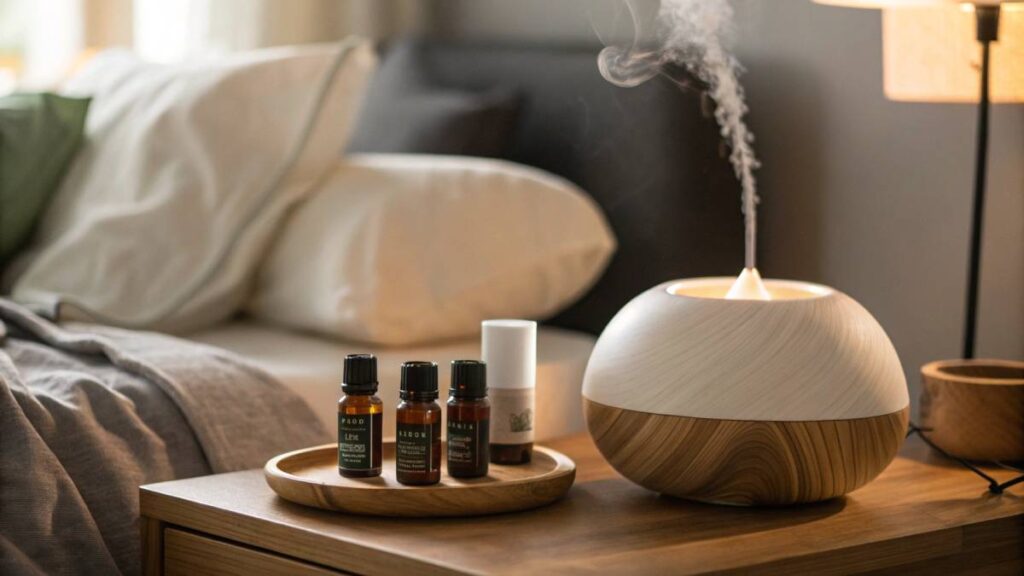
Allergens and Sleep Bummers
Common Bedroom Sneaky Culprits
Those dusty little troublemakers in your bedroom can throw a major wrench into your sleep schedule. Knowing who these pesky party crashers are can help you kick them out of your nighttime haven.
| Invisible Menace | Lurking Spot | Annoying Side Effects |
|---|---|---|
| Dust mites | Everywhere you lay your head—bedding, mattresses, and those floors you walk on | Sneezing and itchy eyeballs |
| Pet dander | Your furry buddies | Stuffed-up nose and achoos |
| Pollen | Sneaks in through open windows, sticks to your clothes | Snotty nose and scratchy voice |
| Mold | Creepy damp spots, leaks that never got fixed | A hacking cough and wheezy breaths |
Game Plan to Evict Bedroom Pests
If you want to get your beauty sleep, you’ll need to lay down the law on allergens. Here’s how to tell them they’re not welcome:
- Scrub-a-Dub: Give your carpets and couches a regular vacuuming hug. Use a damp cloth to catch the dust bunnies without sending them flying.
- Bedtime TLC: Treat your bedding to a weekly date with hot water. Protect your pillows and mattresses with covers that shut out allergens.
- Moisture Mastery: Bust out a dehumidifier to keep the air nice and dry, so mold doesn’t start throwing parties.
- Pet Patrol: Make your room a no-fly zone for pets. Keep them spruced up to stop those fluffy fuzz balls from spreading everywhere.
- Breathe Easy: Break out the air purifiers with HEPA filters—the kind that gobble up tiny troublemakers. Check our thoughts on using air purifiers and filters for more scoop.
- Fresh Air Fix: Crack a window or get the fans spinning for some breeze action. We wrote the guide on freshening up your room’s breeze. You’re welcome.
By embracing these moves, you can turn your sleep space back into a peaceful retreat. For more sleep sanctuary secrets, peek at our collection of tips on crafting the perfect sleep environment.
Aromatherapy and Sleep
Aromatherapy’s like nature’s little sleep potion. With the right essential oils in the mix, both the air you breathe and the sleep you get can level up.
Benefits of Aromatherapy for Sleep
Scents from essential oils can work their magic to chill you out and boost your sleep vibe. These oils can turn your snooze game around by tackling stress and making your space feel zen.
| Essential Oil | What It Does |
|---|---|
| Lavender | Keeps you calm and cool |
| Chamomile | Makes you drowsy and clears your mind |
| Cedarwood | Gets you to sleep soundly |
| Bergamot | Lifts your mood and zaps stress |
Smell is tight with how we feel and think. Sniffing the right aroma? It’s like telling your brain, “Let’s just chill out now,” making it a breeze to snooze away. For more tips on making your perfect sleep setup with these scents, check out our other article.
Using Essential Oils Safely in Your Bedroom
Essential oils breathe life into your sleep but always remember, safety first! Otherwise, you might deal with pesky allergic reactions or itchy skin.
How to Use Essential Oils:
- Diffusers: These nifty gadgets puff the oil into the air, making it easy-peasy to breathe in those sweet smells all night.
- Pillow Sprays: A quick spritz of diluted oils on your pillow can help send you straight into snoozeville.
- Baths: Toss a few essential oil drops in your bath to unwind before hitting the hay.
Understanding the balance between benefits and risks is crucial when it comes to sleep aids.” – Dr. Michael Roberts, Pharmacologist
Stay Safe Tips:
- Mix oils with a carrier oil before putting them on your skin.
- Always try a little spot test first.
- Stick to oils okay for breathing in.
- Store out of little ones’ reach and away from curious pets.
Keeping essential oil fun and safe can make a world of difference in boosting your snooze sanctuary. For more tips on tricking out your sleep space, peep our pieces on sleep-friendly temps and the best sounds for sleep.
With aromatherapy’s perks and a few safety tricks, sprucing up your bedroom for top-notch rest is no sweat. For a deeper dive into aromatherapy’s wonders for sleep, check out our main article.
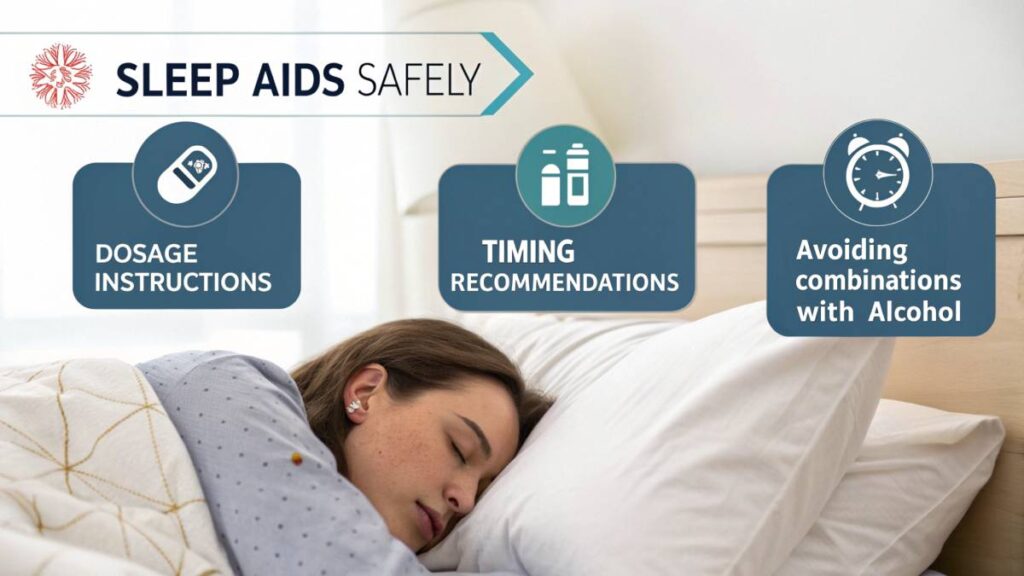
Creating Your Sleep Sanctuary
Want to snooze better every night? It’s time to transform your bedroom into a sleep paradise, starting with fresher air. We’ll spill the beans on how to tweak the air quality for snooze-tastic results, ensuring that your dreamland is as comfy as it gets.
Implementing Air Quality Improvements
A breath of fresh air in your bedroom can work wonders for your nightly rest. Here’s how to make it happen:
- Natural Breezes: Crack open those windows regularly to let in the fresh air. Helps to place your bed away from windows—keeps out those pesky pollutants from the great outdoors.
- Air Cleaners: Snag an air purifier with a jazzy HEPA filter. It’ll kick out particles, allergens, and other nasties. Check out our page on sleep environment optimization for the lowdown on air purifiers.
- Green Companions: Add a dash of nature with houseplants like snake plants and peace lilies. They’re not just pretty faces—they help clean your air. Poke through our best plants for sleep article for more green buddies.
- Spick and Span: Regular sweeping and wiping keep dust bunnies and allergens at bay. Use hypoallergenic bedding, and make washing it a regular gig.
- No Nasty Chemicals: Go natural with your cleaning supplies; harsh stuff releases sneaky chemicals that mess with air quality.
Enhancing Your Sleep Environment for Better Rest
Great air is just the start; let’s jazz up every nook and cranny of your sleep haven:
- Chilled Out Room: Keep the bedroom cozy cool, somewhere between 60-67°F (15-19°C). A solid temp does wonders for deep sleep. Our guide on ideal sleep temperature has more nifty tips.
- Noise Busters: Say goodbye to disruptions by soundproofing. Rugs, throne curtains, or white noise gadgets work. More brilliance awaits you in our soundproof bedroom tips.
- Light Control: Keep it dim to wind down. Blackout curtains can block those beams, and you might wanna dim the lights pre-bedtime. For more about it, swing by our blackout curtains effects piece.
- Snooze-Worthy Bedding: Pick a mattress and pillow that cradles you just right. Hypoallergenic choices can keep the allergies at bay too. Dive into our takes on the best mattress for sleep and best pillow for sleep.
- Soothing Scents: Sprinkle some essential oils like lavender or chamomile in the air for a serene vibe. Our aromatherapy for sleep guide has the details.
| Area | Strategy | Benefit |
|---|---|---|
| Air Quality | Natural Breezes | Better air flow |
| Air Cleaners | Boots allergens and particles | |
| Green Companions | Nature’s air cleaners | |
| Spick and Span | Less dust; happier you | |
| No Nasty Chemicals | Fewer sneaky hazards | |
| Temperature | Chilled Out Room | Comfy, deep sleep |
| Noise Level | Noise Busters | Fewer wakey-wakey interruptions |
| Lighting | Blackout Curtains | Keep out unwanted glow |
| Bedding | Snooze-Worthy Bedding | Blissful, sneeze-free rest |
| Aromatherapy | Soothing Scents | Relaxation in the air |
Crafting your own sleep haven is all about dialing in every little detail. Tuning up the air and keeping the rest of the bedroom happy will have you sleeping like a baby. More fantastic tips await you in our extensive guide on the perfect sleep environment.
Main Tips
- Optimize Your Sleep Environment: Regularly clean your bedroom to reduce allergens, maintain humidity levels between 30%-50%, and ensure good ventilation.
- Choose the Right Sleep Aid: Assess your needs and consult with a healthcare professional to select the most appropriate sleep aid, whether natural supplements, OTC options, or prescriptions.
- Incorporate Aromatherapy: Use essential oils like lavender or chamomile to create a calming atmosphere that promotes relaxation and better sleep.
- Monitor Humidity Levels: Invest in a hygrometer to keep track of your room’s humidity and adjust using humidifiers or dehumidifiers as needed.
- Seek Professional Help When Needed: If you experience persistent sleep issues or unusual sleep behaviors, consult a healthcare provider to address underlying causes.
Conclusion
Achieving restful sleep is a multifaceted journey that involves more than just taking a pill at bedtime. By meticulously optimizing your sleep environment—reducing allergens, maintaining ideal humidity levels, and ensuring proper ventilation—you lay the groundwork for uninterrupted rest. Understanding the spectrum of sleep aids available, from natural supplements like melatonin and valerian root to over-the-counter and prescription medications, empowers you to make informed decisions tailored to your unique needs. However, it’s crucial to approach these options with caution, recognizing the potential risks of dependence and side effects. Incorporating aromatherapy can further enhance your sleep quality, offering a natural pathway to relaxation. For those facing persistent sleep challenges or underlying health issues, seeking professional medical advice is essential. Balancing these strategies with holistic approaches like cognitive-behavioral therapy ensures a comprehensive plan for long-term sleep wellness. Remember, quality sleep is foundational to your overall health and well-being—prioritize it with knowledge and care to wake up refreshed and ready to embrace each day.
FAQs
1. What are the best natural ways to improve sleep quality?
Incorporating practices like maintaining a consistent sleep schedule, using aromatherapy with essential oils such as lavender, and optimizing your sleep environment by reducing allergens can significantly enhance sleep quality naturally.
2. Can over-the-counter sleep aids be used safely for long-term insomnia?
Over-the-counter sleep aids are generally recommended for short-term use. Prolonged use can lead to tolerance and dependence, so it’s essential to consult a healthcare professional for persistent insomnia issues.
3. How does humidity affect sleep, and what is the ideal level?
Humidity levels that are too high can promote mold and dust mites, while too low humidity can cause dry skin and throat irritation. The ideal bedroom humidity level is between 30% and 50% to ensure comfortable and healthy sleep conditions.
4. What should I do if I experience side effects from sleep medications?
If you encounter side effects from sleep medications, it’s crucial to consult your healthcare provider immediately. They can adjust your dosage, suggest alternative treatments, or provide strategies to mitigate the side effects.
5. When is it necessary to seek medical help for sleep problems?
Seek medical assistance if you experience persistent insomnia, unusual sleep behaviors like sleepwalking, excessive daytime fatigue, or if sleep issues are affecting your mental or physical health.
Resources
Final Thoughts
Sleep is not just a passive activity; it’s a vital component of our overall health and well-being. By taking proactive steps to optimize your sleep environment—such as controlling allergens, maintaining ideal humidity, and ensuring proper ventilation—you create a foundation for restful nights. Understanding the various sleep aids available, from natural supplements to prescription medications, allows you to make informed choices that align with your personal health needs. However, it’s essential to approach these aids with caution, being mindful of potential dependencies and side effects. Incorporating holistic practices like aromatherapy and exploring non-medication solutions can further enhance your sleep quality sustainably. Remember, if you face persistent sleep challenges or suspect underlying health issues, seeking professional medical advice is crucial. Embrace a balanced approach to sleep, prioritizing both environment and well-being, to wake up refreshed and energized each day.
Recommended Products
- Philips SmartSleep Wake-Up Light Alarm Clock
Enhance your morning routine with Philips SmartSleep, which simulates sunrise to wake you gently and naturally.
Shop on Amazon - Pure Enrichment MistAire Ultrasonic Cool Mist Humidifier
Maintain optimal humidity levels in your bedroom with the Pure Enrichment MistAire, perfect for reducing allergens and promoting comfortable breathing.
Shop on Amazon - Nature’s Bounty Melatonin Gummies
Ease into sleep with Nature’s Bounty Melatonin Gummies, providing a natural and tasty solution for better sleep cycles.
Shop on Amazon - Allersearch Air Washer with HEPA Filter
Improve your bedroom air quality with Allersearch’s Air Washer, effectively removing dust mites, pet dander, and other allergens.
Shop on Amazon

